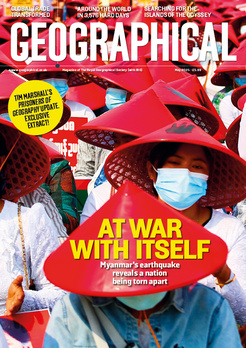
Katie Burton reviews Rob Dunn’s book A Natural History of the Future, published by Basic Books
In A Natural History of the Future, biologist Rob Dunn provides a riposte to sweeping statements about ‘saving the planet’ or the ‘death of nature’. Climate change and human attempts to control landscapes will indeed wreak vast damage on natural ecosystems, but ‘nature’ will find a way. Just don’t expect it to look the same (or be as desirable) as that which surrounds us today.
Dunn uses some of the laws of biology (‘laws of the motions of cells, bodies, ecosystems, and even minds’) to demonstrate why this is the case, and to present examples of what nature might look like in the future. Some laws hint at what to expect as habitats shrink (we should expect ancient species to go extinct in shrinking patches, while those species able to survive in expanding urban or agricultural habitats will ‘ride with us into the future’). Other laws suggest where species might move to as the climate changes, and what might happen as previously unknown species interact. Many of these laws have direct (and often disturbing) consequences for Homo Sapiens. The Law of Escape says that species thrive when they are able to escape predators or other threats. Today, our ability to escape the parasites and pests that feed on our crops, and the viruses that prey on our bodies, is severely diminished.
Dunn’s conclusions are often alarming, but he does also provide suggestions and solutions. Some of these are fairly general. His central premise is that our attempts to control nature are both futile and dangerous: making farm fields more simple or biocides stronger simply doesn’t have the effect we expect – we can expect more pests, more parasites and more hunger. Therefore leaving more of the world to nature is a good move, as is embracing diversity of crops (‘farming as a crow would’). Other suggestions are more specific: we must monitor for the insect vectors of the worst parasites and prepare public health systems. But perhaps the most important thing of all is that we wake up to the consequences of our meddling. We are largely blind to what’s coming.




